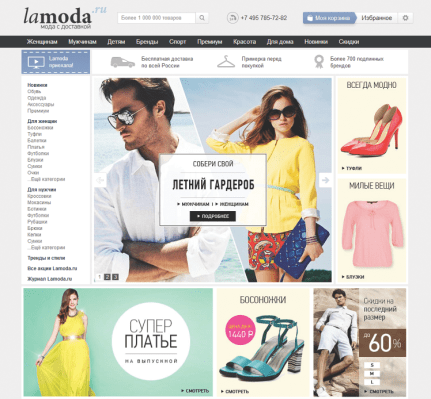More news this morning from Rocket Internet as the Berlin-based startup incubator continues to clean house ahead of a planned public listing. Today the company, alongside one of its biggest co-investors, Kinnevik, announced that it would consolidate five of the fashion brands that it has established in emerging markets into a single entity that will have a combined valuation of €2.7 billion ($3.5 billion).
The companies getting consolidated have florid, fantasitcal names — they include Dafiti (Latin America), Jabong (India), Lamoda (Russia and CIS), Namshi (Middle East) and Zalora (South East Asia and Australia). In contrast, the new umbrella group has a distinctly more prosaic moniker: it will be called Global Fashion Group (GFG).
The closing of the deal is expected to happen by the end of 2014.
Rocket Internet says that “substantially all” the direct and indirect shareholders in the five e-commerce companies will contribute their shares into the newly formed Luxembourg-based entity. The three largest shareholders in GFG will be Kinnevik (25.1%), Rocket (23.5%) and Access Industries (7.4%).
“GFG will be focused on capturing the massive growth opportunity of fashion e-commerce in emerging markets. Each of the business units will be able to build on the original Rocket platform and continue to leverage knowledge and expertise gained across 23 countries,” said Oliver Samwer, CEO of Rocket Internet, in a statement. “I look forward to working with our founders in accelerating GFG’s growth profile and development even further.”
Rocket Internet, which started its operations in its home market of Europe, has for the last several years been focusing significantly more on developing markets, which are far less saturated in terms of usage and competition, and are filled with consumers who are only just coming online, and therefore represent the opportunity for fast growth. The opportunity is big: GFG, Rocket says, will collectively cover 23 countries and 2.5 billion people, with an estimated fashion market value of €330 million.
Although the names have been different, the formula has remained the same: a mix of products that are perennial, global favorites alongside pieces that are tailored (pun!) to the local market, with a matching variety of brands. GFG, Rocket says, will continue in the vein that it has up to now, with the individual brands remaining intact:
“GFG will maintain multiple business models including full inventory, branded shops and marketplaces tailored to the opportunities within the local markets. In addition, GFG will continue to explore the development of adjacent categories like personal care. Mobile commerce will remain a core focus for GFG through the continued development of mobile applications aimed at the growing smartphone user base in its territories,” the company writes in a statement.
Those five operations together have raised over €1 billion in investment to date — link through to the CrunchBase profiles on the right for the full rundown for each — with shareholders including Kinnevik, Access Industries, Summit Partners, Verlinvest, Ontario Teachers’ Pension Plan and Tengelmann, but with not very much in the way of publicly released data on how well they are doing.
Today we are getting some more specifics. As of June 30 2014, GFG had 4.6 million active customers and over 7,000 employees. For the first six months of 2014, GFG websites had 353 million unique visitors, received 8.4m orders and generated €436m of Gross Merchandise Volume. In 2013, GFG’s IFRS revenues were €406m. It has €350 million of cash as of 30 June 2014.
The Board of Directors of GFG will include Lorenzo Grabau, CEO of Kinnevik as Chairman, Oliver Samwer, CEO of Rocket as Deputy Chairman and representatives of the other largest shareholders.
“The creation of GFG brings together five powerful digital brands led by a unique group of highly talented founders and managers. By operating as a single entity, Dafiti, Jabong, Lamoda, Namshi and Zalora will be even more effective in expanding their leadership positions in their respective marketplaces,” said Lorenzo Grabau, CEO Kinnevik, in a statement
The move follows several other significant restructures of Rocket Internet’s activities: yesterday, Zalando — which Rocket Internet spun off around a year ago, put forth its intentions to go public in Frankfurt by the end of this year.
In August, Rocket Internet took an investment of $445 million from the Philippine telco PLDT to work on more ventures (specifically around payments and e-commerce) in emerging markets.
Later in the same month, United Internet took a stake in Rocket Internet that valued the company at €4 billion ($5.3 billion).
And then, long-time Rocket investor Holtzbrinck consolidated its shareholdings across the Rocket Internet portfolio companies and exchanged them for a 2.5% stake in Rocket Internet itself.
